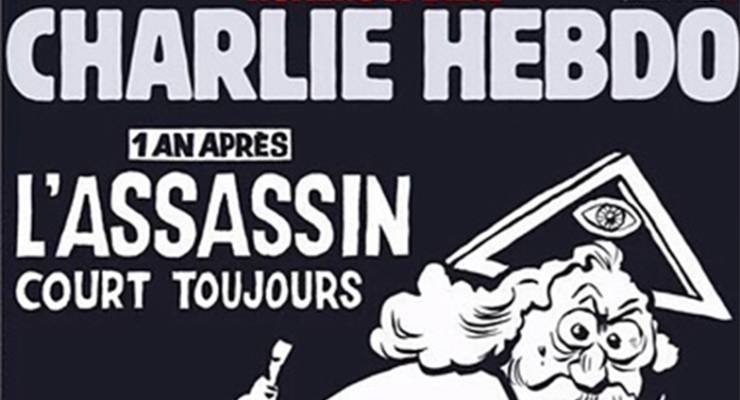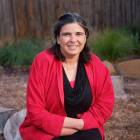
As any language student can tell you, jokes are the most difficult form of communication to translate. I learned this as an undergraduate student in Hindi and Urdu.
Newspaper reports are nuts-and-bolts stuff, while literary prose is a matter of style and rapport. Poetry is more difficult; the words may translate but the rhythm, the resonance and much of the meaning is lost.
Urdu poetry (like Persian poetry) sounds overly purple when translated into English, although there seems to be a market for sickly pseudo-Sufi verse — cf the proliferation of bad Rumi quotes (many of them fake) across Facebook and Twitter.
But jokes are the most difficult of all. In translation, they’re never particularly funny. Most often, they’re simply baffling. The language barrier does not have to be particularly high for the joke to be lost in translation. Despite Steve Irwin’s international success, I have never managed to explain the name of this publication to interviewees from outside Australia.
The issue of jokes lost in translation received a lot of airtime in the wake of the attack on the Charlie Hebdo office last year. Most prominently, of course, was the claim that Muslims extremists (and/or Muslims in general) fear laughter and ridicule above all else. However, once the initial tide of “Je suis Charlie” had passed, Charlie Hebdo was at the centre of a heated discussion about whether the publication’s cartoons were offensively racist or whether their ugly bombastic tone, when read outside of France, was just a failure of translation.
Translations and failures in translation were one of the main topics of conversation at an English-language event featuring visiting French writers Marie Darrieussecq and Nicolas Fargues at the Alliance Francaise in Melbourne on Wednesday. Both writers have been published in English-language translation, and Darrieussecq herself has undertaken translations.
Both of them have spent significant periods of time outside of France, with Fargues having spent his childhood in Cameroon, Lebanon and Corsica while Darrieussecq has travelled widely in Africa and written about intercultural relationships (both her own and those of her fictional characters). More recently, she volunteered her services as a regular columnist for Charlie Hebdo in the wake of the attack, telling Tony Jones on Lateline that the murdered cartoonists “were all people who belonged to my life” and she wanted to preserve their legacy.
The conversation between the two writers was convivial and friendly, except on the topic of multiculturalism and racism. Darrieussecq observed: “In Paris and maybe here as well, you go to literary events and think ‘Where are the black people?’ It’s quite shocking to us.”
Fargues said, “We still find it hard to admit that we are a multicultural people. This is something that we have to work on.”
However, Darrieussecq visibly bristled as Fargues noted the discrimination against migrants and the widespread belief that “we” are superior to outsiders. To Fargue’s observation that “we have the power” (in comparison to migrants), she responded that “we can’t afford to be too tolerant”.
The chair, University of Melbourne lecturer in French studies Bertrand Bourgeois, quickly steered the discussion onto less contentious issues. However, the disagreement topic resurfaced during the discussion period after an audience member asked Darrieussecq to talk about “the elephant in the room” — her work for Charlie Hebdo.
Noting that she had talked extensively about this topic during her Australian tour, she described the attack as “the biggest shock of my life”, which had placed a lot of things at stake. She became angry as she spoke about the way in which she believed Charlie Hebdo had been misunderstood as a racist publication. “It was never meant to be read outside of France” and could not be understood without an extensive knowledge of French politics and comic tradition.
Its apparently crude and derogatory humour was in the tradition of Rabelais. She said that she is now very pessimistic: “I don’t know how we can survive in a globalised world”, in which French culture cannot remain cocooned from the scrutiny of outsiders.
Fargues, however, is less enamoured of Charlie Hebdo’s legacy. Change has to be acknowledged and Islam is now the second-largest religion in France. He said that he approved of the decision of the Anglo-Saxon newspapers to blur their images of the offensive Charlie Hebdo cartoons so as not to hurt the feelings of their Muslim readers.
Darrieussecq bristled again and Bourgeois tried to move the conversation back onto safer terrain, but another audience member intervened to say that she believed it to be an important topic that was worthy of further discussion.
And so the debate continued. Darrieussecq returned to her defence of Charlie Hebdo. The newspaper’s long history as a left-wing publication that has mocked Catholics and Jews as well as Muslims has not been taken into account by those who accuse it of racism. The supposedly racist cartoons are, in fact, an attack on racism. Properly understood, they are ridiculing racism’s perpetrators, not its targets.
To the extent to which this may be true, I do not think that it absolves Charlie Hebdo of blame. The publication’s recent cartoons about the asylum seeker crisis, for example, are difficult to forgive. Aylan (Alan) Kurdi’s father has said that he wept when he saw Charlie Hebdo’s cartoon entitled “Migrants”, in which a leering male chases a scantily dressed woman through the streets.
The logo underneath the drawing reads “Que Serait Devenu le petit Aylan s’il avait grandi? Tripoteur de fesses en Allemagne”, which The Independent translated as, “What would little Aylan have grown up to be? An ass groper in Germany.”
It is possible — just — to see past the offensiveness of this cartoon to read it as a satire on the shift in public sentiment from overwhelming sympathy to revulsion and fear as the image of Aylan Kurdi’s body lying on the beach was displaced by reports of mass sexual assaults allegedly committed by male asylum seekers during New Year celebrations in Germany.
However, it is asking far too much of the toddler’s grieving family to expect them to see the joke — in particular, a joke made in an unfamiliar language and comedic tradition. And so, after listening to the debate between Fargues and Darrieussecq, I have to say that, like Helen Razer, “Je ne suis pas Charlie”.








“Do you respect Islam or are you racist?” That’s the choice we’re given.
indeed
“To the extent to which this may be true, I do not think that it absolves Charlie Hebdo of blame. ”
Say what? The “this” referred to here is Darrieussecq’ defence of Charlie Hebdo – that, as Hussein puts it, “The supposedly racist cartoons are, in fact, an attack on racism. Properly understood, they are ridiculing racism’s perpetrators, not its targets.”
So Hussein is saying even if it’s true that the cartoons are an attack on racism, this doesn’t absolve the magazine from “blame”. Blame for what? The murder of its staff by religious fanatics?
If this is not what Hussein means, she really should tell us what her point is.
“To the extent to which this may be true, I do not think that it absolves Charlie Hebdo of blame”.
Paul Noonan you beat me to it.
“Blame” for what exactly? Blame for getting themselves murdered maybe?
There is the solution apparently – don’t so anything that might incite someone to kill you.
That sort of thinking does not belong in civilised modern cultures.
Mike, if a terrorist group said they would blow up the Sydney Opera House or the Harbour Bridge or the City Circle underground if a daily newspaper in that city published another ‘satirical’ cartoon about the prophet (let’s say the paper had already posted a few such cartoons), would you personally encourage the paper to do just that? Would you want our civilised modern culture to take a stand against those who refuse to accept such ‘modern’ cultural norms – and hang the public expense and possible loss of life? In other words would you be prepared to pitch public infrastructure and innocent ‘civilians’ against suicide bombers out of principle?
I get that point Hugh, but say we bow down to the terrorists in that example & then the terrorist come back & say that girls in school offend the prophet, or that Christian churches are offensive or….. ?At what point do we stop bending over?
I’m with Darrieussecq on this. Charlie Hebdo is amongst the best in the world at what it does. You don’t necessarily need much French langauage to get the point of a lot of their cartoons. Of course they offend people! It’s often intended to do that. But there seem to be an awful lot of people around who are only too ready to be offended by even the slightest criticism. Granted, Charlie Hebdo hits harder than most, but to suggest that they are to blame for a murderous attack on their own offices by islamic “extremists” is a serious misinterpretation of any facts you can gather together.
As all below have pointed out, Shakira, with her usual blind spot re religious delusions, just does not get it – “I do not think that it absolves Charlie Hebdo of blame“.
BLAME? Blame the murderers not the victims.
To then try to drag in the Kurd family is just typical of emoting replacing thinking.
Very poor thinking indeed but below par even for the rationally challenged Ms Hussein. (Anyone who invokes MzRaz as a justification is in deep, deep doo-doo indeed.)